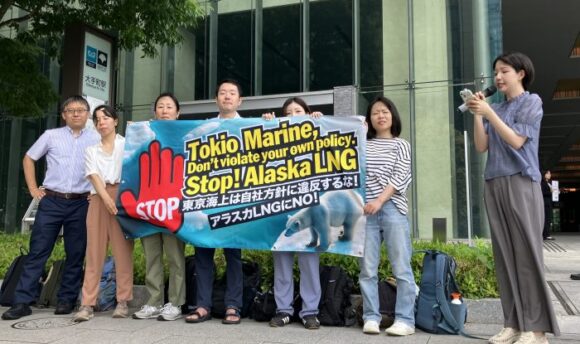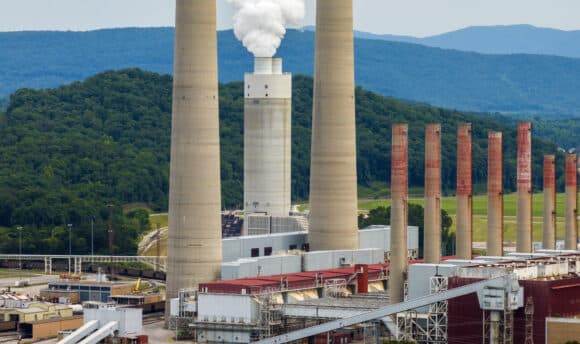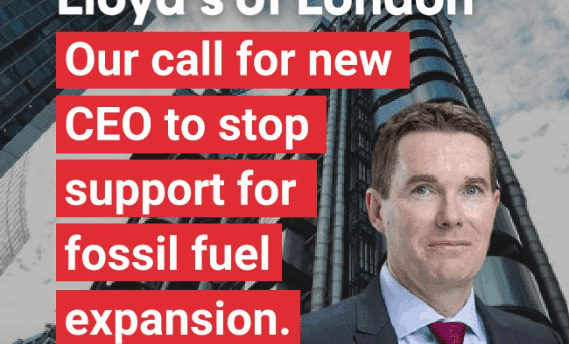Aviva’s new ESG fund falls short of a “unanimous vote in favour” for a fossil-free fund from the £140m actors’ union pension group, Equity Pension Scheme.
On the second day of London’s first ever Climate Week, activists from Pension to be Proud and Fossil Free London, with the support of Insure Our Future, gathered to repeat demands for a fossil-free default pension. The protest took place in front of the Green Finance Summit, as Aviva Investors’ Chief Responsible Investment Officer, Steve Waygood, took part in a panel entitled “Investing in a Sustainable Future”.
Thousands of actors and stage managers’ pensions are collected through the actors’ union Equity Pension Scheme, worth £140m, managed by Aviva. In 2017, members called for divestment from all fossil fuels in the default pension package – headed by Oscar-winner Mark Rylance and ‘Blood Diamonds’ star David Harewood. Equity Pension Scheme subsequently voted unanimously in favour of a fossil fuel free default pension fund.
Two years later, Aviva’s ‘Stewardship funds’ exclude companies generating more than 25% of revenues from coal mining and power and companies active in tar sands and/or oil operations in the Arctic. However, the default ESG pension fund still invests clients pensions into gas and oil companies.
Leila Mimmack from Pension to be Proud and a member of the EPS states: “Aviva’s announcement is a first step, but our well-earned pensions are still being invested into numerous harmful fossil fuels, including shale oil and gas producers. Given the escalating demand for fossil fuel free pensions, Aviva should not be afraid to push the boat out all the way out and take the lead in divestment. We stand for a fossil-free default pension. It’s Aviva’s fiduciary duty to act on its clients’ demands and move our money into a fund that will preserve our future by implementing strict exclusion of all fossil fuels.“
Beyond pensions, Aviva’s investment portfolio also remains heavily exposed to fossil fuels. According to Profundo research, Aviva held £268 million in companies building new coal plants, £113 million in companies producing tar sands and £98m in the two tar sands transporters Kinder Morgan and TransCanada in Autumn 2018. They also held £97 million in the 30 biggest companies active in fracked-gas LNG terminals in North America, and £404 million in oil and gas drilling in ultra deep waters.
Aviva engages with dozens of companies which receieve over 30% of their revenues from coal, and its divestment covers a relatively minute fraction of its holdings. Today, Aviva has divested over £11 million from 17 companies, but other insurers such as AXA have divested over £2.6 billion from coal companies since 2015, and more than £500 million from companies producing and transporting tar sands.
"Aviva has a reputation of advocating for climate action in the policy space. However, few are aware of the reality of Aviva’s investment portfolio. Aviva likes to divide the investors’ community in two: those who engage with fossil fuel companies to push them to transform their business model, and those who divest. But the reality is that most, if not all of the investors who have divested from companies highly exposed to coal or tar sands, also engage with many companies, individually or collectively through the Climate Action 100+ initiative. Aviva’s simplistic description of the issue has only one purpose: to draw attention away from its reluctance to change its own investment model. If Aviva were serious about fighting climate change, it would stop making new investments into fossil fuel companies, and announce a clear exclusion of all companies with expansion in the coal and tar sands sector."
Since the launch of the global Insure Our Future campaign two years ago, 14 European insurers, and one Australian insurer, have come out with policies to address climate change. Eight of the policies were announced in the last six months with the scope of policies continuing to expand. Just last week, Zurich became the third insurer to limit involvement in the tar sands sector.



